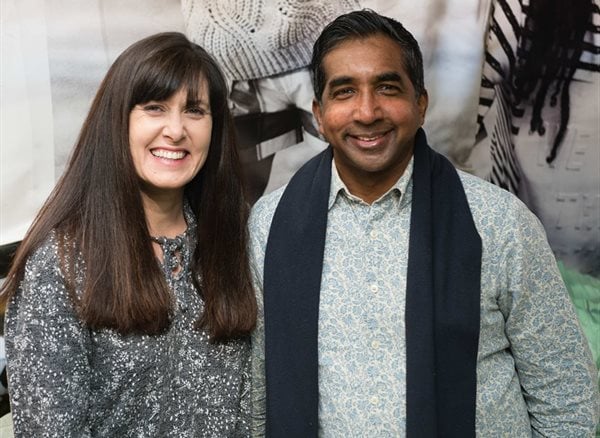
Founded in Gauteng in 2011, CTG is focused on caring for the environment through the recycling of clothes, and helping people – particularly mothers of children with disabilities – out of poverty.
Among the organisation's initiatives that tackle issues linked to poverty is its micro-business programme, which currently empowers 108 women – 56 of whom have children with disabilities – to become successful entrepreneurs in their communities by selling recycled, pre-loved clothes. The collections process for these garments is facilitated and supported through H&M and other businesses, schools and financial institutions.
“Clothes to Good and H&M South Africa have an established history, having worked in partnership on several other far-reaching initiatives since 2016,” says CTG founder, Jesse Naidoo. “In 2020, with the enormous socio-economic challenges brought on by the Covid-19 pandemic, H&M sought to expand on the collaboration by providing vital funding and support to CTG for its micro-business programme.”

Seeing the initiative as a constructive response to the economic challenges the women faced, H&M became an integral partner of the programme in 2018, supporting mothers of children with disabilities through vital financial assistance, garment collection and therapy intervention.
“Many women and mothers endure the hardship of the economic burden, even more so in lockdowns. Mothers of children with disabilities are particularly vulnerable – often stranded at home and excluded from employment opportunities due to the fact there is no one to care for their children,” says Naidoo.
“These women and mothers are initially introduced to us through our collaboration with Afrika Tikkun before embarking on our full therapy-driven assessment and training programme. As part of the micro-business programme they receive financial literacy and wellness training, general sales training, business support and ongoing mentorship. When they purchase their first 10kg bale of clothing from Clothes to Good they feel empowered and supported to run their own businesses.”
Tammy Greyling, operations director at CTG, adds, “For these women, it is very difficult to find pathways out of poverty. However, by breaking down the barriers to employment for those who need it most, the micro-business project ultimately empowers women to become entrepreneurs in their own communities and then go on to create a chain of employment opportunities."

“At H&M, we do everything we can to prevent clothing and textiles ending up in landfills. Upcycling, and eventually recycling, is two of many ways to fulfill our goals towards a more sustainable fashion future,” explains Caroline Nelson, H&M South Africa country manager. “In this way, the micro-business programme encompasses far more than driving positive fashion disposal behaviour and environmental awareness. It also views sustainability as a core driver of socio-economic development and upliftment,” she says.
As part of H&M Group’s ambition to become fully circular and climate positive by 2040, all garments and textiles no longer suitable to wear are reused and converted into products. These products include toys for early childhood development used in Clothes to Good’s 123ECD programme and resources for children with disabilities. Clothes that cannot be used in products are shredded into textile fibres used in a variety of industries such as the motor industry and bed manufacturing.
“For the women participating in the micro-business programme the benefits are innumerable,” says Greyling. “These women are now able to provide for their families, put food on the table, pay rent and school fees, grow their individual ventures, create further employment opportunities and have hope for the future. At a further stage, we look forward to expanding the programme from Gauteng to other areas.
Commenting on how the public can support the programme, Nelson says, “We want to make it easy for the consumer to be a part of this vital initiative and make a difference! Look out for our 'Let’s Change Fashion' campaign, part of the ongoing H&M global garment collection initiative, which began in 2013. This campaign encourages you to drop your bag of pre-loved and old garments in the recycling box at your local H&M store.
"Every bit of clothing makes a difference and enables you to help to create gainful employment for women in our country’s vulnerable, low-income sector. “
She concludes, “By encouraging customers to recycle their garments, 'Let’s Change Fashion' aims to inspire and encourage change. Together, by driving meaningful and long-lasting impact across the entire fashion value chain, we can create sustainable livelihoods, allow women to earn independent incomes and improve their, and their families’, futures.”

